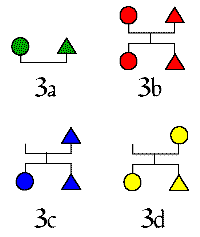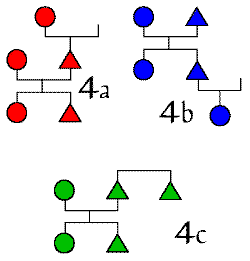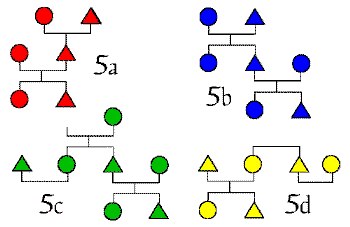Laslett household clasification

Type 1 - Solitaries
Solitaries are people living alone.
- 1a widows or widowers.
- 1b single people or those whose marital status is not known.
Type 2 - No family
No family refers to persons living together who Laslett thought
did not constitute a 'family'. This is somewhat of a catch-all
class.
- 2a unmarried siblings who live in the same
household but without a coresident parent.
- 2b other types of unmarried relative living together.
- 2c unrelated coresident persons

Type 3 - Simple family
These are nuclear families - couples and their children without any
other type of relative.
- 3a married couples without children
- 3c married couples with children
- 3c widowers with children
- 3d widows with children
Type 4 - Extended family

These are nuclear families plus one or more relatives who do not form
other couples.
- 4a Extended upwards - eg. including the widowed parent of the father or
mother in the nuclear family, or the not-married siblings of parents
- 4b Extended downwards - eg. including unmarried grandchildren
- 4c Extended laterally - eg. including the unmarried siblings of the
father or mother in the nuclear family, or the children of siblings
- 4d any combination of types 4a - 4c
Type 5 - Multiple family

These are households containing more than one couple who are closely
related in some way.
- 5a Second unit upwards - eg. a couple and the wife's parents
- 5b Second unit downwards - eg. a couple and a married child with
spouse
- 5c Units on one level - eg. a widowed parent plus two or more of
their married children
- 5d frereches - a French term meaning coresident siblings. Laslett
restricts the term to households with more than one married sibling but
no coresident parent
- 5e other multiple families
Type 6 - Indeterminate
No subtypes
| 


